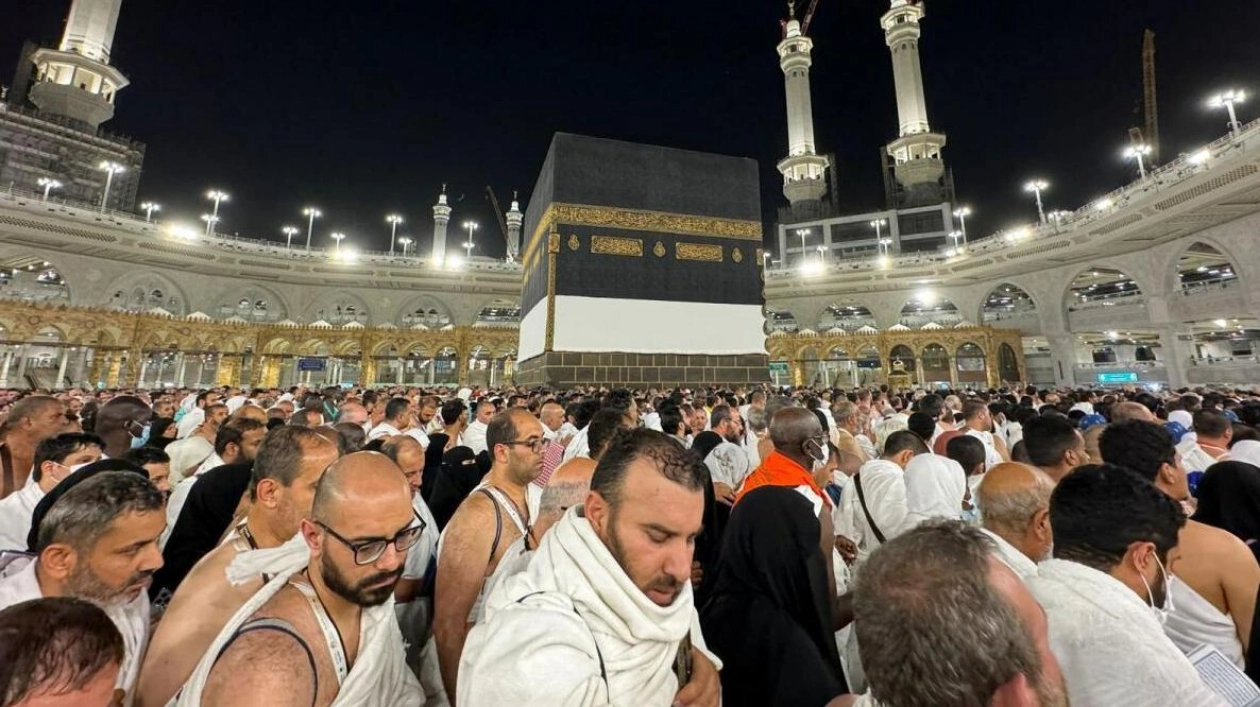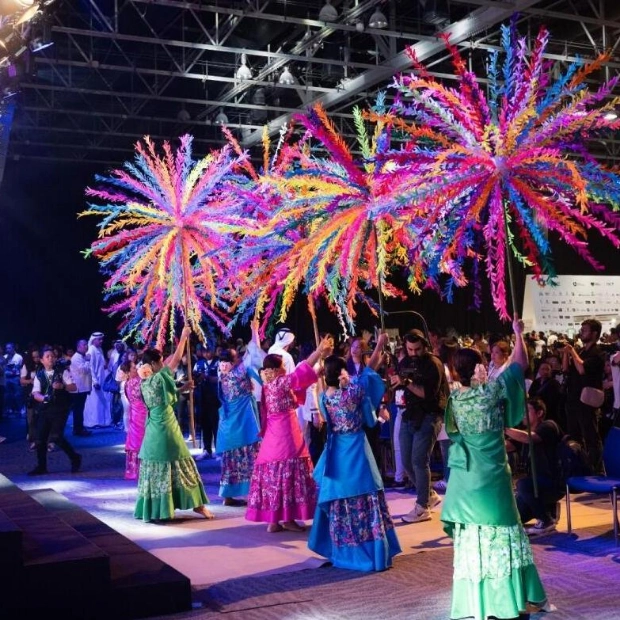Over 850,000 Hajj pilgrims completed the Tawaf Al-Ifadah (circumambulation of the Kaaba) on Sunday within the Grand Mosque in Makkah, Saudi Arabia. This ritual signifies the concluding phase of the Hajj and the commencement of the Eid Al Adha festivities for Muslims worldwide. The authorities managed the entry into the Grand Mosque via designated doors for each group of pilgrims to perform the Tawaf around the Holy Kaaba, enhancing the flow and ease of movement for the pilgrims. Additionally, the pilgrims carried out the final significant ritual of the Hajj, the 'stoning of the devil', in western Saudi Arabia, coinciding with the global celebration of Eid Al Adha. Starting at dawn, the 1.8 million Muslims participating in this year's pilgrimage cast seven stones at each of three concrete walls representing the devil in the Mina valley, outside the holiest city of Mecca. This ritual honors Abraham's stoning of the devil at the three locations where it is believed Satan attempted to deter him from obeying God's command to sacrifice his son. Amidst the winding down of one of the world's largest annual religious gatherings, authorities from various countries reported at least 22 fatalities, many due to 'extreme heat', underscoring the severe physical toll of the annual rites, which in recent years have occurred during the Saudi summer. Roads leading to the concrete walls were congested on Sunday, with some pilgrims struggling under the morning sun. At least two pilgrims were observed lying on the side of the road, sheltered by buildings and cars. Temperatures exceeded 40℃ daily, reaching 46℃ on Mount Arafat on Saturday, where pilgrims performed hours of outdoor prayers. Jordan's foreign ministry announced on Sunday that 14 Jordanian pilgrims had died 'after suffering sunstroke due to the extreme heat wave', and 17 others were 'missing'. Iran reported the deaths of five pilgrims without specifying the cause, while Senegal's foreign ministry stated that three others had died. Saudi Arabia has not released any information regarding fatalities. During last year's Hajj, at least 240 people, many from Indonesia, died, according to figures from various countries that did not specify the causes of death. There were also over 10,000 cases of heat-related illnesses, 10 percent of which were heat stroke, a health ministry spokesman told AFP. Despite the physically demanding conditions, worshippers did their best to endure, seizing what for many was a once-in-a-lifetime opportunity to pray at Islam's holiest shrines. 'It's physically grueling, but it's very spiritually charged. For me, I was sort of in awe at all times,' said 49-year-old Canadian Neron Khan. For part of the pilgrimage, 'I was in some sort of heat exhaustion situation,' she added. 'But I had to keep going because we were surrounded by everybody. And you just had to push through.' One treatment center near Mount Arafat recorded 225 cases of heat stress and fatigue so far, the official Saudi Press Agency reported. 'It was very, very hot,' Rohy Daiseca, a 60-year-old Gambian living in the United States, told AFP on Saturday night as pilgrims collected stones to throw. 'Alhamdulillah (praise be to God), I put a lot of water on my head and it was OK.' Amal Mahrouss, a 55-year-old woman from Egypt, said she was happy beyond words and the Hajj showed 'that we are all equal, that there are no differences between Muslims around the world.' One of the five pillars of Islam, the Hajj must be performed at least once by all Muslims with the means. This year's figure of 1.8 million pilgrims is similar to last year's, and Saudi authorities said on Saturday that 1.6 million of them came from abroad. These included 17,500 Syrians, according to Badreddine Mansour, director of a Saudi agency specializing in pilgrimages. For Syrians living in government-controlled areas, hajj has long been out of reach but the reintegration of President Bashar al-Assad's government into the Arab fold last year has enabled direct flights to the pilgrimage. For Ghada Rifai, 60, a retired teacher from Damascus, this meant 'a dream come true.' The stoning ritual coincided with the Muslim holiday of Eid Al Adha, or the feast of the sacrifice, which honors Abraham's willingness to sacrifice his son before God offered a sheep instead. Worshippers typically slaughter a sheep and offer part of the meat to the needy. The festivities were overshadowed by the war between Israel and Palestinian militant group Hamas in the Gaza Strip. 'We don't feel the Eid holiday because our brothers in Gaza are oppressed under the (Israeli) occupation,' said Najem Nawwar, a 43-year-old Egyptian pilgrim. King Salman invited 2,000 Palestinians to the hajj at his own expense, including relatives of Gazans who have sought refuge elsewhere.

Text: Lara Palmer
17.06.2024
Final Rituals of Hajj and Eid Al Adha Celebrations Amidst Heat and Global Concerns





